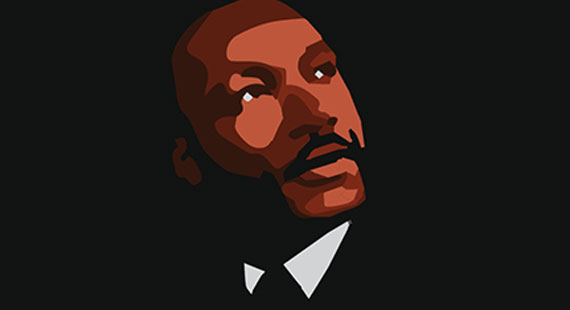On Monday, January 18, most Americans will pause for the day to celebrate the life and legacy of the late Rev. Dr. Martin Luther King Jr. Even though Dr. King was born in Atlanta on January 15, 1929, the MLK Day federal holiday is commemorated annually on the third Monday each January.
MLK Day’s threefold purpose is to honor the memory of this social justice activist who championed the fight for racial equality, retain the focus on the present-day social and civil rights challenges and highlight nonviolence’s theology and power that brought about critical social reform.
On April 4, 1968, Dr. King was assassinated while standing on the balcony of the Lorraine Motel in Memphis, Tennessee. At the time of Dr. King’s assassination, he was supporting and advocating for sanitation workers to get better wages and preparing to launch the Poor People’s March on Washington, D.C., during the summer to demand the redistribution of political and economic power.
And now, 92 years after Dr. King’s birth and nearly 53 years after his death, most of us will celebrate MLK Day as just a holiday off from work. Very few will pause, reflect and ask, “What would Dr. King say about the events going on in our country today?”
Many will answer this question by replaying the poetic Dr. King’s words from his I have a dream speech (August 28, 1963). Not too many are going to tune into and listen to the words of the prophetic Dr. King, which are more than ever apropos to the climate our nation finds itself in at this existential season, such as the Letter from a Birmingham jail (April 16, 1963), in which Dr. King emphatically highlighted,
“Injustice anywhere is a threat to justice everywhere. We are caught in an inescapable network of mutuality, tied in a single garment of destiny. Whatever affects one directly, affects all indirectly.”
If Dr. King could narrate a second Letter from a Birmingham jail, it would probably be another clarion call to those who represent the priests, prophets and pastors of our churches and synagogues: “My dear brothers and sisters of the faith, where are you? Why are you not on the front lines of justice, equality and anti-racism? As I challenged you in my first letter, I do so again, self-righteous words in favor of slow progress and justice are not enough and stand contrary to your divine calling.”
Then, there are the prophetic and provoking words of Dr. King, which he delivered to the Southern Christian Leadership Council on August 16, 1967:
And so, I conclude by saying today that we have a task and let us go out with a divine dissatisfaction.
Let us be dissatisfied until America will no longer have a high blood pressure of creeds and an anemia of deeds.
Let us be dissatisfied until the tragic walls that separate the outer city of wealth and comfort from the inner city of poverty and despair shall be crushed by the battering rams of the forces of justice.
Let us be dissatisfied until those who live on the outskirts of hope are brought into the metropolis of daily security.
Let us be dissatisfied until slums are cast into the junk heaps of history, and every family will live in a decent, sanitary home.
Let us be dissatisfied until the dark yesterdays of segregated schools will be transformed into bright tomorrows of quality integrated education.
Let us be dissatisfied until integration is not seen as a problem but as an opportunity to participate in the beauty of diversity.
Let us be dissatisfied until men and women, however black they may be, will be judged on the basis of the content of their character, not on the basis of the color of their skin. Let us be dissatisfied.
Let us be dissatisfied until every state capitol will be housed by a governor who will do justly, who will love mercy and who will walk humbly with his God.
Let us be dissatisfied until from every city hall, justice will roll down like waters, and righteousness like a mighty stream.
Let us be dissatisfied until that day when the lion and the lamb shall lie down together, and every man will sit under his own vine and fig tree, and none shall be afraid.
Let us be dissatisfied, and men will recognize that out of one blood God made all men to dwell upon the face of the earth.
Let us be dissatisfied until that day when nobody will shout, “White Power!” when nobody will shout, “Black Power!” but everybody will talk about God’s power and human power.
As we remember Dr. King on this day, the question is not only what he would say and do if he was alive today, but the most important question is what are we going to do and be during these turbulent times in our nation?
I am convinced and convicted that Dr. King would say to each of us today, “Forget about praising me! If you want to honor and celebrate my memory, then roll up your sleeves, gird up your loins and get busy doing the work of justice, nonviolence and love. The nation needs you.”
I am convinced and convicted that God is calling each of us to embody the ethics, values and courage of Dr. Martin Luther King Jr. for such a time as this.



